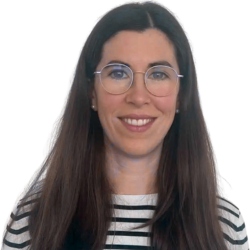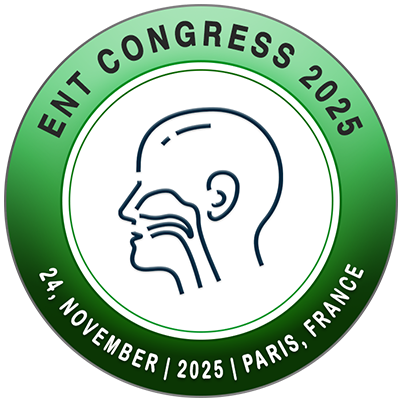
Nadine Stapel
Technical University of Munich, GermanyPresentation Title:
Levels IV and V in Neck Dissection: Benefit or Risk? Balancing oncologic safety and postoperative morbidity in head and neck cancer surgery
Abstract
Background: Head and neck carcinomas typically
metastasize via the lymphatic system. Surgical
removal of cervical lymph nodes (neck dissection)
is an essential part of therapy. While radical
procedures were historically performed, often
resulting in significant functional impairments,
current approaches favor selective dissections. The
necessity of including lymph node levels IV and V
remains under discussion.
Methods: A retrospective analysis was conducted
on 108 patients treated at “Klinikum rechts der
Isar, TU Munich” between 2009 and 2019. All
included cases had intraoperatively positive lymph
node findings in levels I–III, and underwent
standardized removal of levels IV and V. The
collected data included pathological findings,
radiological diagnostics, and postoperative
complications.
Results: Metastases were detected in 93.5% of
cases in levels II–III, in 9.3% in level Ia, in 36.1%
in level Ib, and in 3.7% in levels IV+V. Occult
metastases occurred in four cases. Metastases in
levels IV+V were found exclusively in tumors
without midline extension. CT sensitivity was
100% for levels Ia, Ib, and IV+V, and 94.9% for
levels II–III. However, specificity was very low at
4.2%.
In total, 40 major and 50 minor complications were
documented, most commonly wound healing
disorders (17.6%), flap necroses (10.2%), and
cervical hematomas (8.3%).
Conclusion: A negative CT reliably excluded
metastases in levels IV+V, whereas positive
findings were mostly false positives. Given the
complication rate, omission of dissection of levels
IV+V may be justified in the case of a negative CT.
A selective neck dissection of levels I–III remains
indicated.
Biography
Nadine Stapel completed her dental studies in 2019
from Ruprecht Karls University of Heidelberg.
Since 2020, she has been conducting research for
her dissertation, which she intends to submit in
2026. Meanwhile, she is working as a dentist in a
general practice in Munich.

